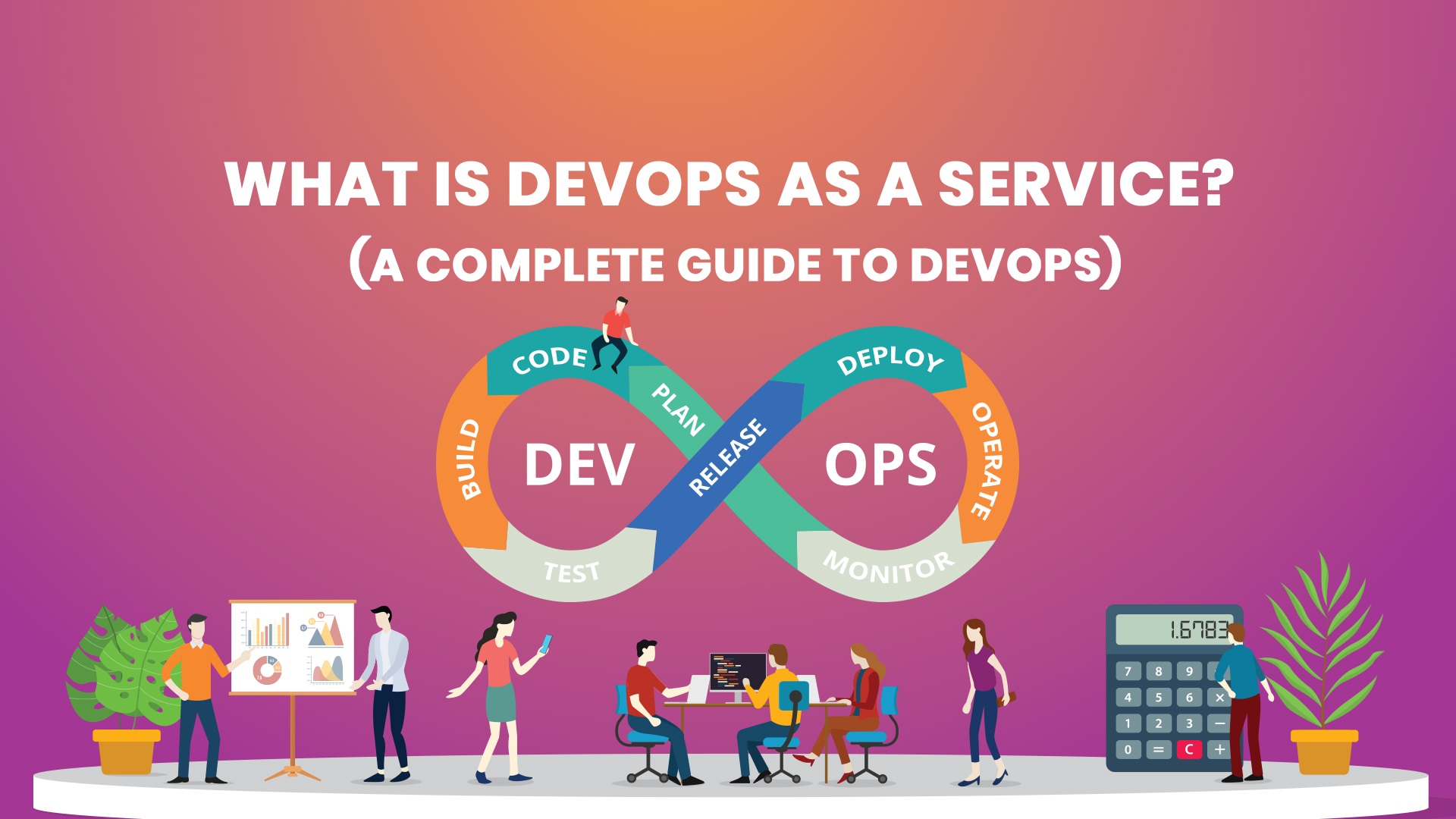You definitely heard something about DevOps. This term has two meanings. DevOps as a person (DevOps engineer) or DevOps-as-a-Service. DevOps engineer logically is the person who works with DevOps services. So, let’s talk about DevOps-as-a-Service.
The ordinary process of software development looks pretty repetitive. A developer writes code and gives it to a Quality Assurance (QA) engineer for testing. QA engineer finds bugs and errors and returns the code to the developer who fixes it. After that testing repeats and code goes to the IT operations who design the environment for code deployment. Such an algorithm can be repeated a few times. Thus, the whole process looks like continuous throwing software between the team members.
DevOps can solve this problem and we’ll define how. In very simple words we can describe DevOps methodology as the tool for increasing the efficiency of the software development process.

It is important to note that DevOps implementation is not only about the newest technologies, here is a lot of attention to the work in team and cohesion. This is important to remove “throwing the responsibility for the project over the wall”, and make an efficient collaboration between team members.
How does it work?
DevOps implementation provides the following steps:
- Continuous Integration. The main DevOps principle is making Continuous Integration and Continuous Delivery (CI/CD). It means you should deliver a product to the end-users as fast as possible. A developer writes code and needs the possibility to test and deploy it quickly. CI allows to do it with the next approach for development. Code is written in small batches that are immediately tested. So, you don’t need to wait for each update for long.
- Continuous Testing. Before the DevOps introduction, QA engineer should have done a lot of repetitive actions during the testing. To make this process more efficient, DevOps methodology provides automated tests that can be run by the developer when needed without the direct involvement of QA specialist.
- Continuous Delivery and Deployment. When software is ready and has been tested, it should be deployed and delivered to the customers. Thus, after the testing the CI/CD pipelines automatically deploy and deliver the software to end-users. This approach incredibly lowers time-to-market.
- Continuous Monitoring and Logging. Even after testing the software can contain some errors or users might need some changes. Continuous Monitoring allows managing changes and errors very quickly.

All these points are connected and automated. So, each team member can do his work without pauses and software delivery becomes more efficient.
What will you have?
Description of DevOps methodology looks very attractive but what will you receive as a business owner? There are a lot of advantages, we’ll consider the most common of them.
- Cost-efficiency. The very important advantage for a business. Each new implementation needs to be cost-efficient. Well, DevOps is very cost-efficient. You need to invest in implementation but the results will give you incredible benefits.
- Speed. DevOps significantly increases the speed of development and, as a result, the speed of delivering the product to the market. Thus, each new feature will be implemented during weeks or a few months unlike in the ordinary software development, where one small error was fixed for years.
- Security and Reliability. DevOps uses the newest tools that comply with security policies and regulations. These tools allow to keep data safe and make the software reliable. Continuous testing excludes the errors in the early stages, so you can be sure your product will be qualitative.

How to implement DevOps managed services?
You might be already convinced that the DevOps is beneficial. If you want to implement DevOps philosophy to your company you should find the Managed DevOps Service provider. You’ll hire a dedicated outsourcing team with a wide experience. This approach is very efficient because you’ll get experienced specialists who know the best practices and methods of the implementation. Such a team will implement DevOps methodology into your company and train your own IT specialists to use it. Also, these companies often provide technical support after the implementation.
As a result, you’ll receive all the benefits of DevOps with relatively small investments.


